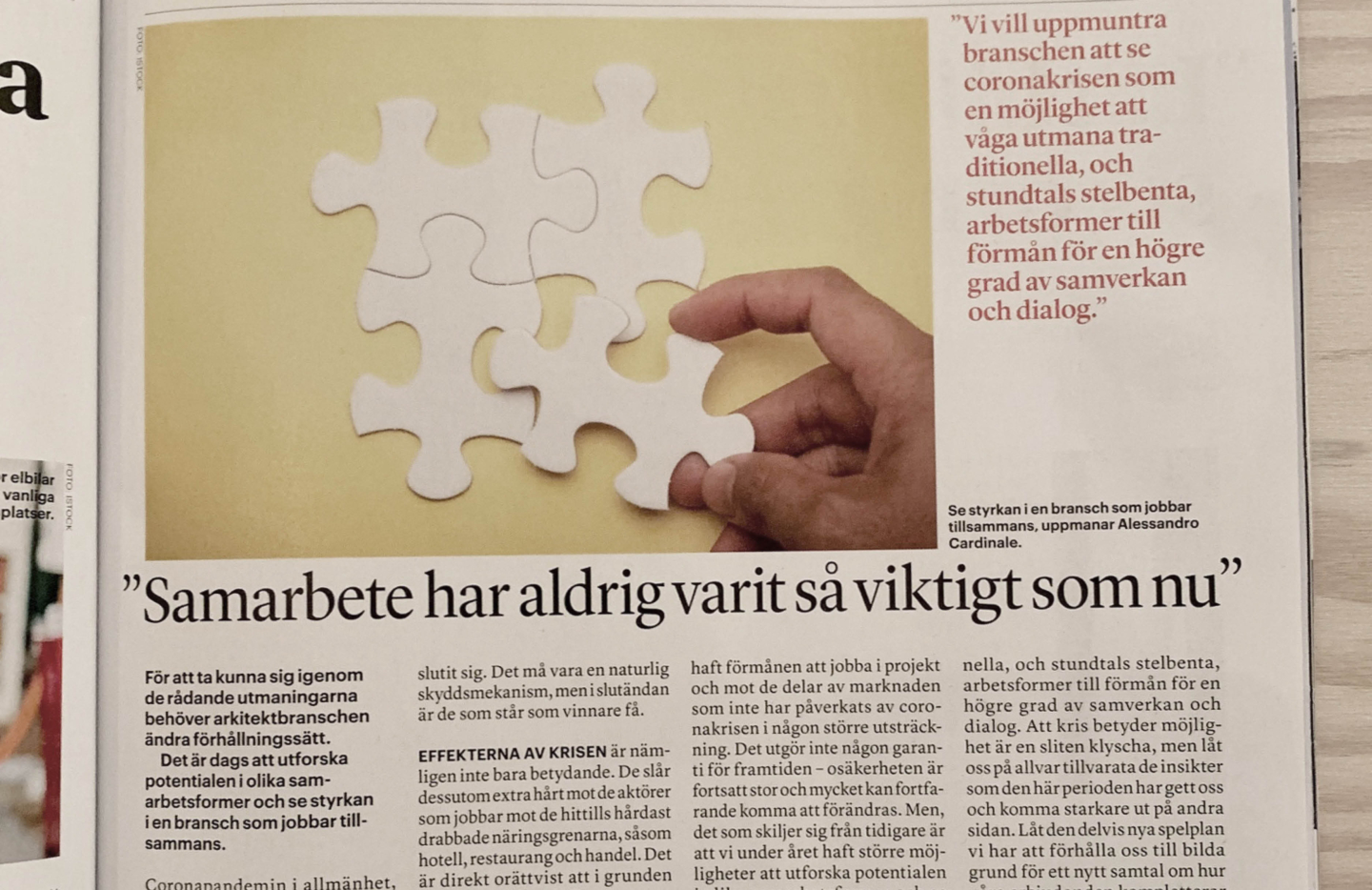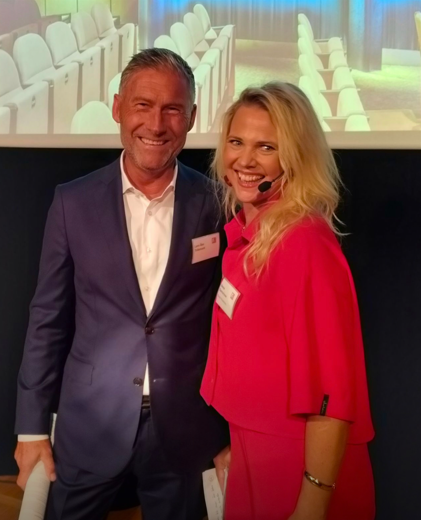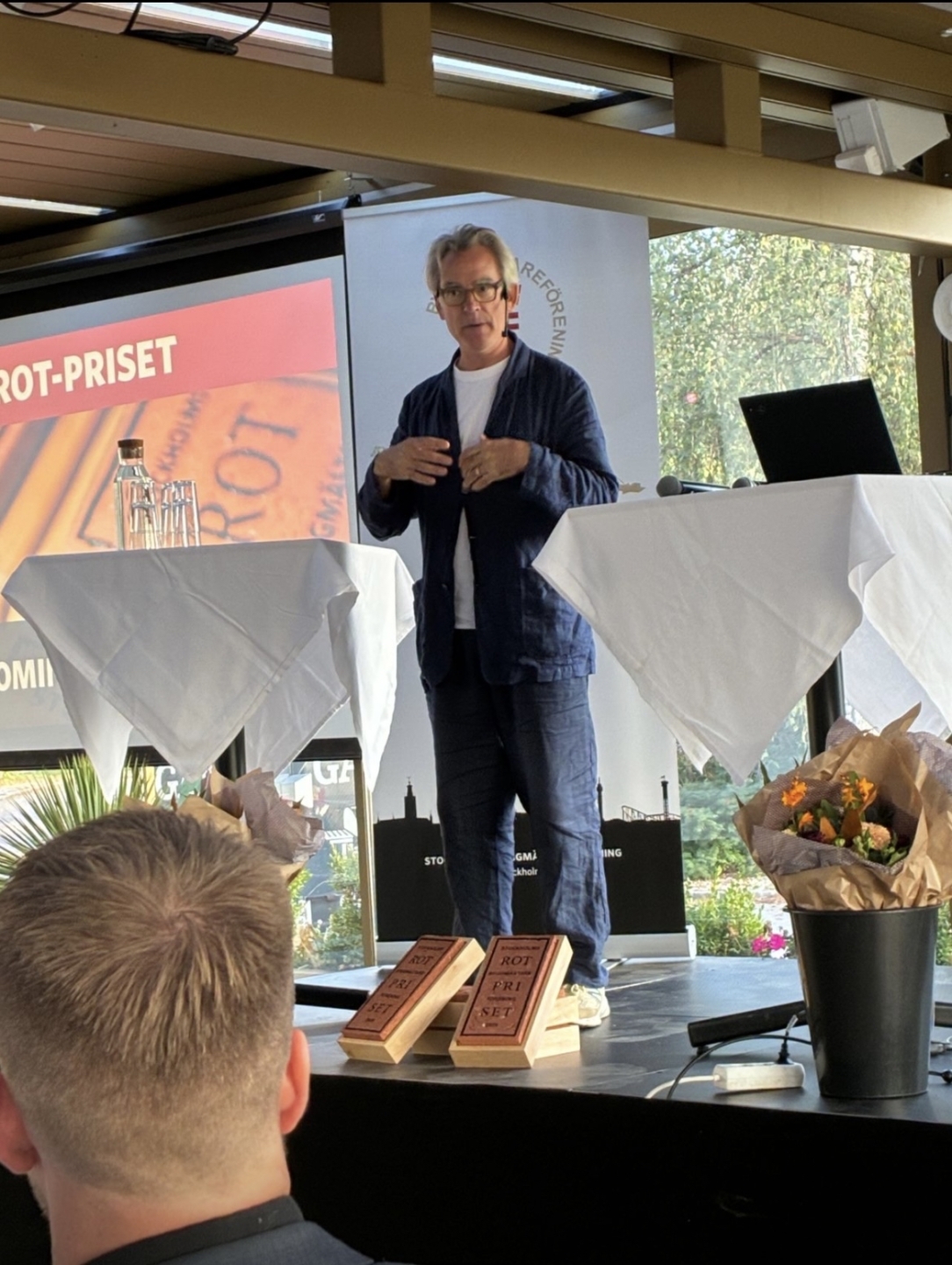
Collaboration has never been as important as it is now
The COVID-19 pandemic, and the second wave, in particular, raises many questions about the future. In the short term, questions focus on which measures best alleviate both the direct and indirect effects of the crisis. However, in the long term, we also need to consider how our industry can establish new working methods that facilitate collaboration and increase our adaptability in both recessions and booms.
Historically, the architectural industry has been relatively restrictive when it comes to cooperation, a trend that, unfortunately, seems to have intensified over the past six months. Instead of coming together to overcome the current challenges jointly, the industry has closed off even more. It may be a protection mechanism, but in the end, the winners are few.
The effects of the crisis are more than significant. It’s been especially hard for actors who work with the most vulnerable industries, such as hotels, restaurants and trade. It is directly unfair that fundamentally successful and profitable architectural firms are affected more than necessary by a crisis that simply could not be prepared for.
In the long run, this means that more and more of our current and future colleagues in the industry are without jobs. Sveriges Arkitekter recently noted that unemployment among architects has increased significantly since the summer, and it will be progressively more difficult for graduating students to establish themselves. These circumstances are not unique to our industry, but none the less relevant to address.
Studio Stockholm has so far been fortunate this year, as we’ve had the privilege of working on projects and within markets that have been less affected by the coronavirus. It does not constitute a guarantee for the future as the uncertainty remains high, and much may still change. But, what has changed since the beginning of the year and the onset of the pandemic is the number of opportunities to explore the industry’s potential through different collaborations and to see the strength of an industry that works together.
In this case, the conclusion corresponds with our understanding of previous experiences with this way of working – sharing skills, resources and projects strengthens the business of all parties. It also creates the conditions for an organization that can cope with rapid changes while spreading any risks.
In light of this, we want to issue a call for cooperation. We encourage the industry to see the corona crisis as an opportunity to dare to challenge the traditional, and sometimes very rigid, working methods in favour of a higher degree of collaboration and dialogue. That crisis leads to opportunities is a worn-out cliché, but let us seriously take advantage of the insights from this period and come out stronger on the other side. Let the somewhat new situations in which we find ourselves form the basis for new conversations about how our services complement each other and how we can work together to create value for both our businesses and clients. If we succeed, we won’t just gain in the short-term; we will also be developing an industry that is more resilient and well-functioning, as well as innovative and inclusive.
The future begins now, and thankfully it’s up to us to shape it.
News

Business Arena
Studio Stockholm Arkitektur’s Marie Holmberg and Alessandro Cardinale will be at the important event Business Arena – will we see you there?
Read more

A big thank you to Fastighetsvärlden for a well-curated event on the theme “Shopping Centers and Retail.”
It’s not easy to predict how we’ll fill our ground floors and shopping centers in the future, or how the numbers will add up when we aim to create safe, vibrant cities filled with culture, music, food & beverage, retail,...
Read more

Yesterday, Studio Stockholm Arkitektur had the honor of attending the ROT Award ceremony
Yesterday, Studio Stockholm Arkitektur had the honor of attending the ROT Award ceremony. We are incredibly proud to have been nominated together with Natur & Kultur in collaboration with JLL, Metrolit among others. Studio Stockholm Arkitektur’s fantastic Karolina Nyström and...
Read more

ArkDes event “The City as a Resource – Preservation, Reuse, and Renewal”
We are incredibly proud to take part in the fully booked ArkDes event “The City as a Resource – Preservation, Reuse, and Renewal”. The event takes place on September 11! Studio Stockholm Arkitektur’s Karolina Nyström together with Ann Reimers from...
Read more
